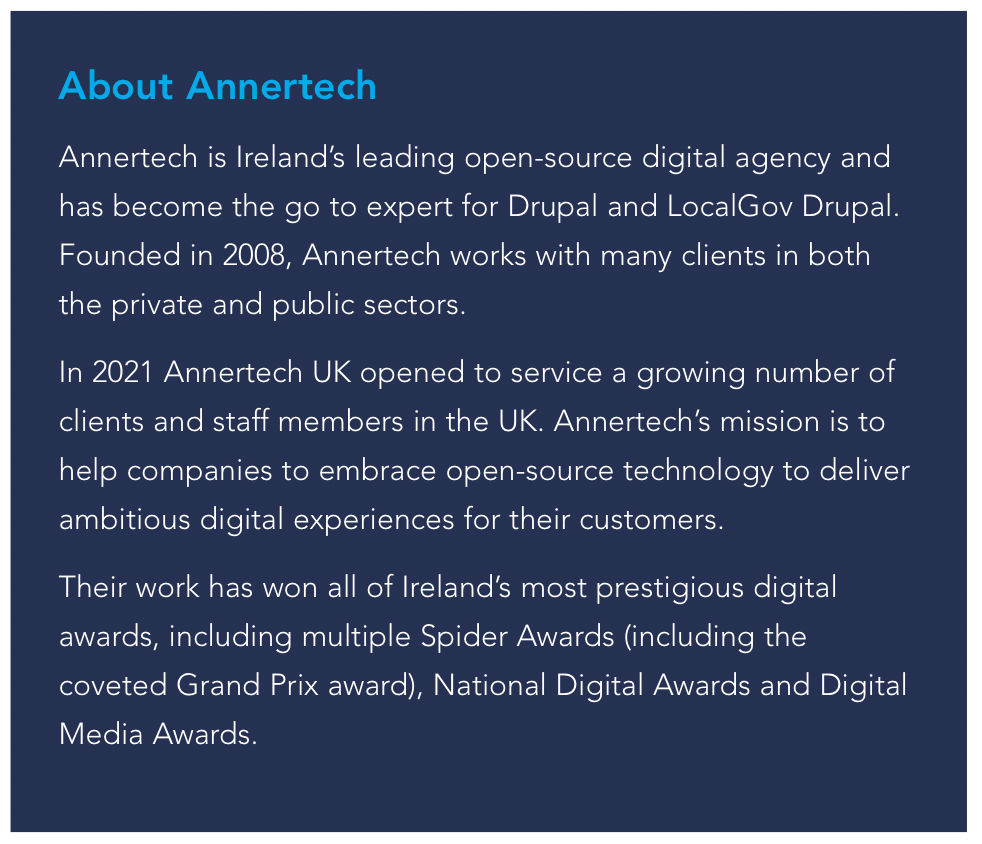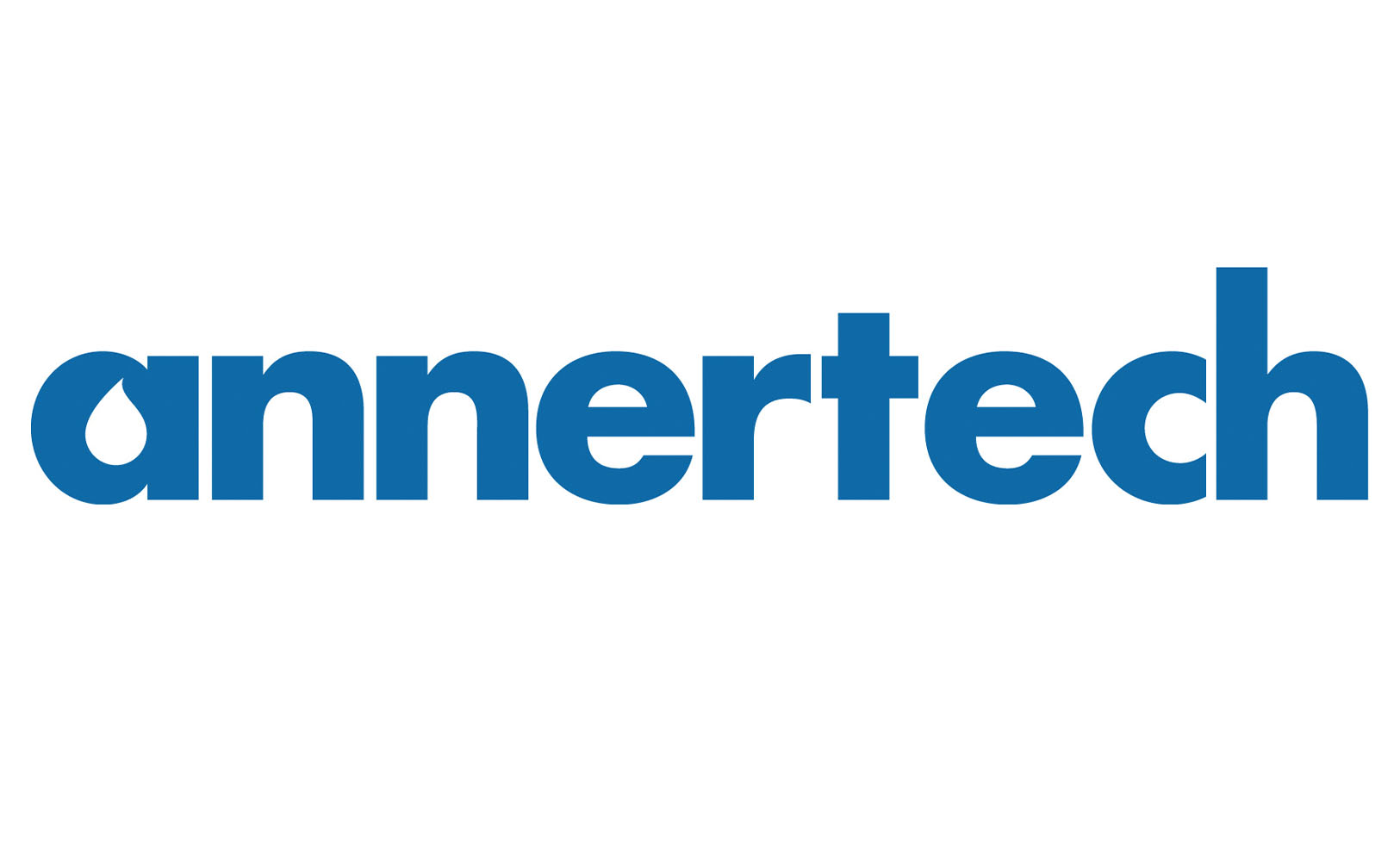LocalGov Drupal and why it is so popular with councils

The rise in popularity of the LocalGov Drupal CMS among local authorities has shaken up the public sector digital sphere. Its numerous benefits are underpinned by the philosophy of Build to Share, which is key to the Government’s digital strategy, writes Stella Power, Managing Director, Annertech.
The innovation, security, flexibility, and economy of the Drupal CMS has ensured its rapid take-up among the public sector over the past few years.
In fact, Drupal was recently named the most popular content management system (CMS) among councils in Ireland and the UK. This is according to the latest updates to the LocalGov CMS Directory, which lists the content management systems that councils currently use.
One of the driving forces for this increase in popularity is the take-up of LocalGov Drupal. Known as ‘the CMS for councils by councils’, LocalGov Drupal is built on Drupal but has been customised to serve councils and their users. It is a tried and tested CMS that is based on user research and councils’ needs.
LocalGov Drupal in Ireland
Although LocalGov Drupal started in the UK, it has had a sustained uptake in Ireland, starting with Tipperary County Council.
Carlow County Council, Laois County Council, and Galway City Council have also joined the LocalGov Drupal family. Carlow.ie was the most recent Irish LocalGov Drupal website to go live in January 2024, combining a gorgeous design with custom development to ensure that the new website would be customer-centric and service-orientated.
The LocalGov Drupal project aligns with the Irish Government’s Build to Share initiative, which forms part of the Government’s Better Public Services, the Public Service Transformation 2030 Strategy.
Its goal is for the public sector to share code in order to save valuable resources like time and money. And they are – Carlow.ie was designed and built in just 11 months. This included some custom-built features, which allow the council a flexible way to showcase vacancies, present minutes of council meetings and display the county’s leaders.
LocalGov Drupal can reduce the cost of building a new council website by up to 80 per cent. Some councils use the budget savings that they achieve by using this open source CMS to add new features to it.
Carlow funded the addition of the Irish Planning Notices extension to the LocalGov Drupal offering, which will be of interest to any Irish councils contemplating moving over their websites.

This gives councils an easy way to add and manage these notices, and for users to be able to filter the notices by year and week number. It also allows these notices to be posted in Gaeilge, boosting the crucial multilingual functionality of LocalGov Drupal sites.
Other features
Other hallmarks of the LocalGov Drupal project are:
- content and functionality is designed to meet or exceed WCAG 2.1 level AA so it is accessible out of the box;
- • because it is an open source CMS there are no licence fees or vendor lock-in;
- its content formats and patterns are based on Government Digital Service standards and user research, and have been tried and tested by the public sector;
- the platform is updated regularly with the latest security updates and features. So not only is it secure, but it uses the latest technology;
- the platform also supports full Irish translations of councils’ services and the website’s content – this was funded by Tipperary County Council;
- LocalGov Drupal has an extension, also funded by Tipperary County Council, that imports the services that a council offers from the Irish Service Catalogue. It gives councils a good launching point for their content, because it lists and imports all the services (and their translations), creates a page for each of them and structures the content throughout the site;
- the HTML Publications extension gives councils the opportunity to finally ditch PDFs and other large document files. PDFs are popular among councils, but they are clunky to use and pose accessibility difficulties for users. Instead, documents can now be presented as web pages. It will make things so much easier for users, especially those on mobile phones or using assistive devices; and
- the standalone Microsites Platform offers users a way of managing an entire fleet of microsites from one place. It is not just for councils – it can be used by any organisation that runs more than one website or microsite.
Conclusion
The LocalGov Drupal philosophy of ‘build to share’ resonates with public sector organisations, who save time and money by pooling their resources.
Currently, there are 45 live council websites built on LocalGov Drupal, and more are in development. As this CMS continues to thrive and grow, so too does the depth of its offering. New features, based on the real-world needs of councils, are being created all the time.


T: 01 524 0312
E: hello@annertech.com
W: www.annertech.com/localgov-drupal





